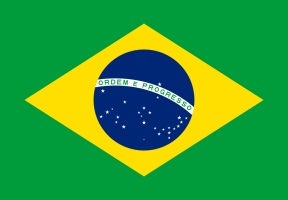By Daniel Nardini
 Currently, Brazil is the second largest exporter of cotton in the world only after the United States (not counting China, which is largely being excluded from the global market because of its genocide against the Uyghurs). When we think of Brazil, we think of the Amazon rain forests and a very diverse population living in some of the largest cities on earth. It seems inconceivable that Brazil would be a major producer of cotton. Cotton is an intensive agricultural product that in the past had caused land erosion and required vast amounts of chemical pesticides just to keep the crop going.
Currently, Brazil is the second largest exporter of cotton in the world only after the United States (not counting China, which is largely being excluded from the global market because of its genocide against the Uyghurs). When we think of Brazil, we think of the Amazon rain forests and a very diverse population living in some of the largest cities on earth. It seems inconceivable that Brazil would be a major producer of cotton. Cotton is an intensive agricultural product that in the past had caused land erosion and required vast amounts of chemical pesticides just to keep the crop going.
When it comes to cotton, the Brazilians are rewriting the book. One major change is that the Brazilians are now using more biological (organic) pesticides to sustain the cotton crop. According to the Brazilian Cotton Producers Association, 34 percent of all cotton fields in Brazil are now being sprayed with biological instead of chemical pesticides. Brazilian farmers do crop rotation to prevent the cotton fields from being exhausted. They may grow corn or soybeans next year or let the fields lie fallow for a year before using them again. More important, the cotton growers do not attempt to touch the Amazon rain forest for farmland. Brazilian cotton farmers use what farmland they have while making it more productive.
Just as equally important in protecting the farmland and the rain forests, Brazilian farmers are changing how they treat the laborers who work the land. Before, laborers were brutally exploited and hardly paid at all. Now, farmhands are housed in well-built, air-conditioned homes where they can be on hand for when the crop is ready. As an added incentive to sell Brazilian cotton, the Brazilian Cotton Producers Association is working hand-in-hand with the Better Cotton Initiative (an international non-profit organization) on a labeling project detailing how Brazilian cotton is produced before it goes to market. This way, the Brazilian Cotton Producers Association can show that Brazilian cotton is not only sustainable but is made from non-exploited labor.
Is any of this making a difference for Brazil in its cotton export market? It seems to be. As I said before, Brazil has become the second largest cotton exporter in the world, and the country intends to be the largest producer and exporter of cotton within a ten-year period. It is important to note that developing countries like Brazil are working to change their agricultural practices in order to meet a more environmentally-minded world. Cotton is in big demand all over the world from companies needing cotton to make clothes for ordinary people to the fashion industry where cotton is a key material for creating fashion wear and accessories. In this context, any country that can produce a sustainable product as well as grown and harvested under non-exploitative standards will beat out all other competition.











Brazil’s Sustainable Cotton
By Daniel Nardini
When it comes to cotton, the Brazilians are rewriting the book. One major change is that the Brazilians are now using more biological (organic) pesticides to sustain the cotton crop. According to the Brazilian Cotton Producers Association, 34 percent of all cotton fields in Brazil are now being sprayed with biological instead of chemical pesticides. Brazilian farmers do crop rotation to prevent the cotton fields from being exhausted. They may grow corn or soybeans next year or let the fields lie fallow for a year before using them again. More important, the cotton growers do not attempt to touch the Amazon rain forest for farmland. Brazilian cotton farmers use what farmland they have while making it more productive.
Just as equally important in protecting the farmland and the rain forests, Brazilian farmers are changing how they treat the laborers who work the land. Before, laborers were brutally exploited and hardly paid at all. Now, farmhands are housed in well-built, air-conditioned homes where they can be on hand for when the crop is ready. As an added incentive to sell Brazilian cotton, the Brazilian Cotton Producers Association is working hand-in-hand with the Better Cotton Initiative (an international non-profit organization) on a labeling project detailing how Brazilian cotton is produced before it goes to market. This way, the Brazilian Cotton Producers Association can show that Brazilian cotton is not only sustainable but is made from non-exploited labor.
Is any of this making a difference for Brazil in its cotton export market? It seems to be. As I said before, Brazil has become the second largest cotton exporter in the world, and the country intends to be the largest producer and exporter of cotton within a ten-year period. It is important to note that developing countries like Brazil are working to change their agricultural practices in order to meet a more environmentally-minded world. Cotton is in big demand all over the world from companies needing cotton to make clothes for ordinary people to the fashion industry where cotton is a key material for creating fashion wear and accessories. In this context, any country that can produce a sustainable product as well as grown and harvested under non-exploitative standards will beat out all other competition.